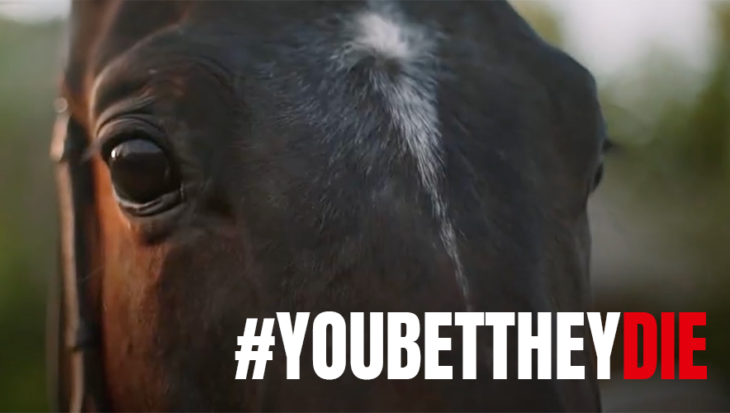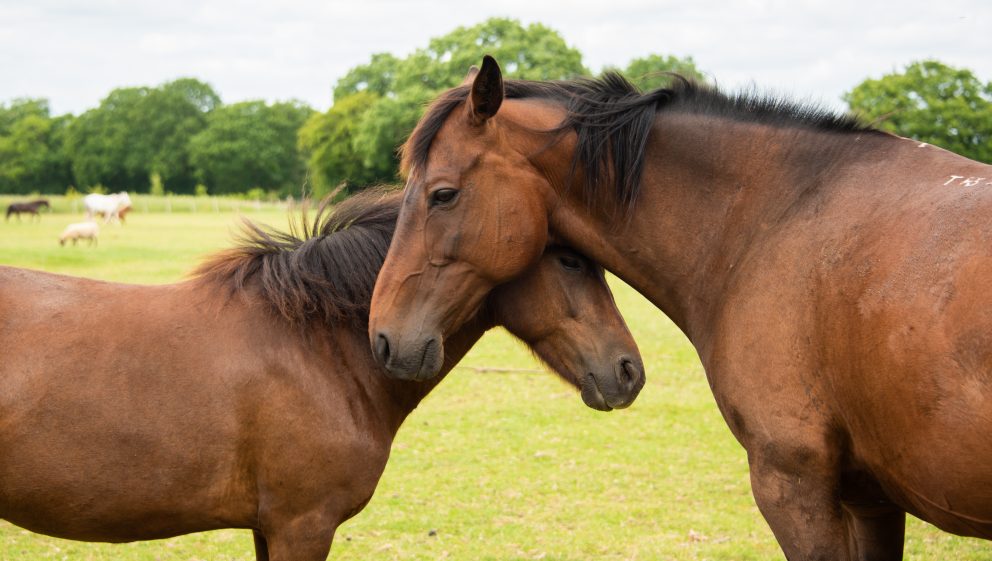Two industries, harming horses, which are largely unseen are ‘blood farms’ and the use of horses for ‘culture media’. Culture media is the ‘soup’ containing nutrients which are used in laboratories to grow cells, bacteria or microorganisms.
Blood farms are exactly what you’d expect – places where animals are farmed for their blood. Horrific ‘blood farms’ take blood from pregnant mares to extract a hormone called pregnant mare serum gonadotropin (PMSG). The mares are forced to live a hellish existence, with repeated pregnancies and numerous ‘blood extractions’ over a couple of months, early in their pregnancy, depending on the level of PMSG in their blood. PMSG is used to ‘increase production’ in farmed animals, usually pigs, to increase profit for farmers. These blood farms are a chilling example of exploiting and harming one species of animal, in order to further exploit another- just to produce something humans do not need.
Horses are also farmed so their blood can be used in laboratories. Many people know about beagles in laboratories, and rats and mice, but horses are also exploited and harmed in the name of ‘science’. In 2023, there were 11,409 experiments conducted on horses compared to 8,212 in 2022. The most recent statistics of the number of animals used in British laboratories stated; ’The main regulated procedure carried out on horses was for the routine production of blood-based products, which are used for a variety of laboratory uses.’
A quick online search found a website explaining that:
‘Horse and sheep blood are the most widely used animal blood products in culture media. The choice of which type of blood to use with culture media is largely traditional, with much of continental Europe preferring sheep blood, whilst the UK and certain parts of the Commonwealth prefer horse blood.’
The same company explains they have: ‘two licenced donor animal blood harvesting farms.’ and that ‘All donor collection procedures are carried out under a Project Licence from the Home Office under the Animals (Scientific procedures) Act 1986.’
Our roadmap to ‘phase out animal testing’ explains the importance of ‘non-animal new approach methodologies’. It is essential that new approach methodologies (NAMs) should not contain any animal tissues, cells or by-products.
Read our roadmap


